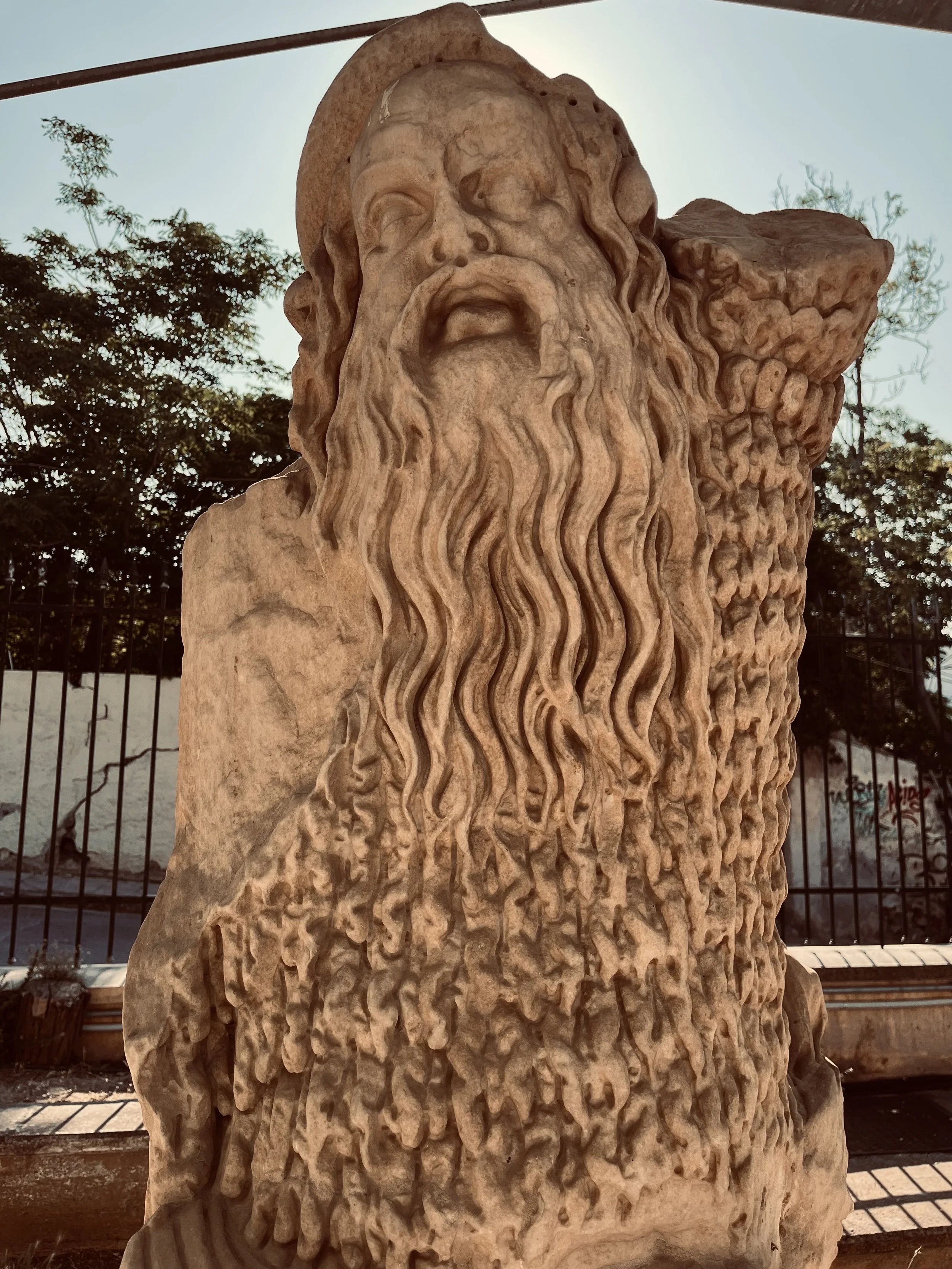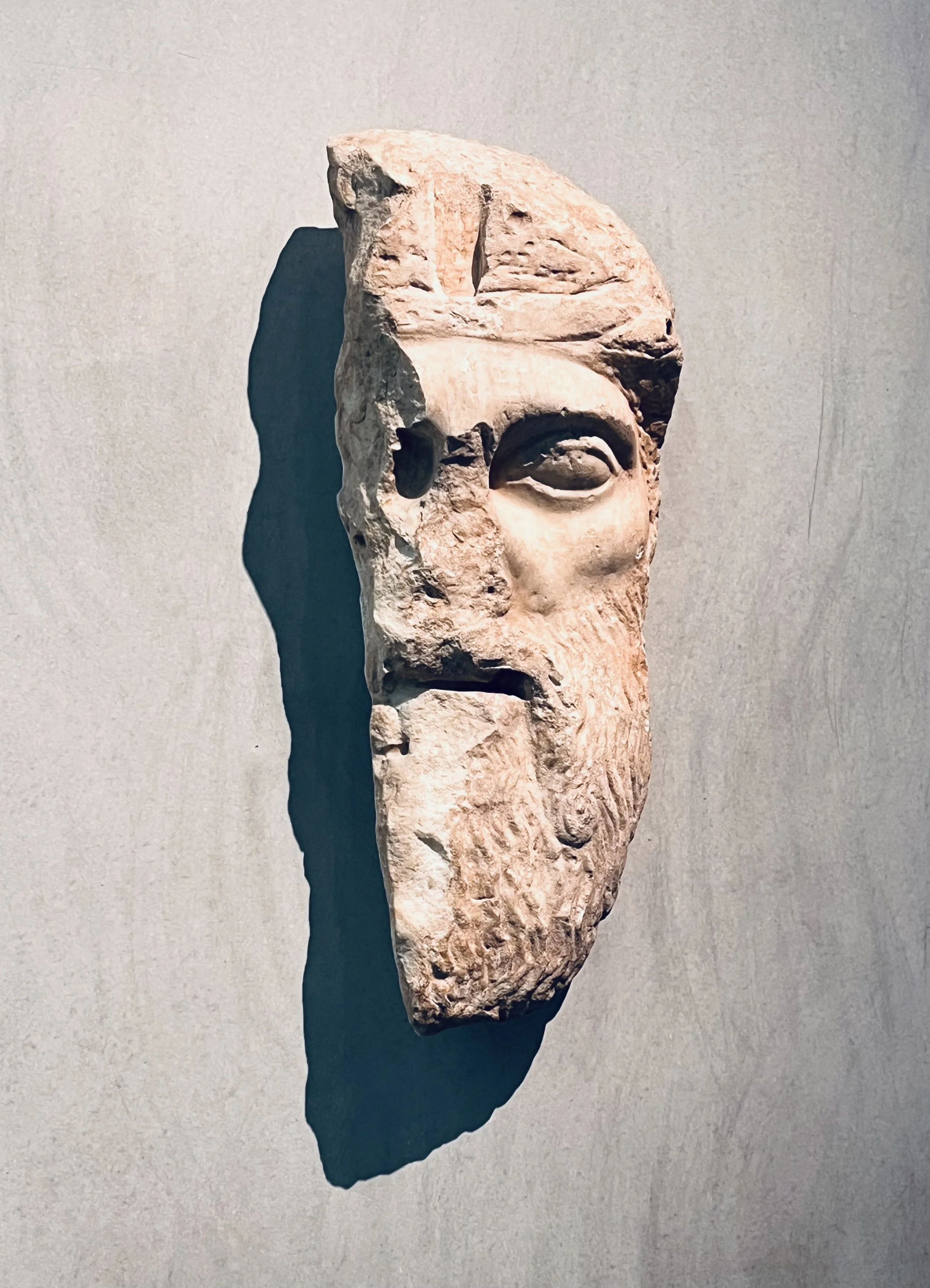How Mythology Meets Modern Transformation
This summer, I stood at the edge of the Theatre of Dionysus, nestled into the southern slope of the Acropolis. I had always known Dionysus as the god of wine, fragrant, intoxicating, festive. But as I walked among the ancient stones, I realized he was so much more. He was the god of theatre, of transformation, of emotion in all its raw and unruly glory.
In that moment, something clicked. Dionysus wasn’t just a symbol of celebration, he was a guide for personal evolution. His mythology mirrors many of the same themes that surface in life coaching: identity, vulnerability, emotional release, and the freedom that comes from rewriting our story.
Mask of Dionysus
The Many Faces of Dionysus
Dionysus lived in paradox. He ruled over the grape harvest and also over chaos. He represented joy, sensuality, fertility, but also madness, grief, and death. He was the god who blurred lines: between laughter and sorrow, ecstasy and terror, control and surrender.
In life coaching, this duality is a familiar terrain. We are not one-note beings. We hold contradictions. And sometimes, the most profound breakthroughs happen when we stop trying to tidy things up and start honoring the wild, layered truth of who we are. Dionysus invites us to embrace that richness. Not to simplify our identity, but to deepen it.
Theatre of Dionysus
The Theatre as a Mirror of the Self
The Theatre of Dionysus was more than a performance space. It was sacred ground. In ancient Greece, theatre was a civic and spiritual event. Tragedies and comedies alike weren’t distractions from life but were reflections of it. The audience came not just to watch, but to witness themselves.
In coaching, we create this same kind of reflective container. Clients come to explore their narrative, the roles they’ve been cast in, the scripts they’ve inherited, the scenes that no longer serve them. Together, we ask: What story are you living? And what story are you ready to write next?
Catharsis: The Alchemy of Emotional Release
The term catharsis was born from Greek drama. Some say, Dionysus was thought to govern this emotional release, a process through which the audience experiences and expels deep emotion, leading to clarity and insight.
In coaching, catharsis can look like naming something you’ve never said aloud. Letting go of a long-held, self-limiting belief. Admitting what you truly want. It’s not always dramatic, but it’s always real. Transformation doesn’t always come from doing more, it often comes from feeling more. From softening into what is true.
Ritual and Reflection in Everyday Life
Dionysian rituals in ancient times were not chaotic indulgence, they were structured, sacred, and symbolic. Through music, dance, storytelling, and shared experience, people connected to themselves and each other. These rites offered a return to something primal, emotional, and human.
Today, we still need rituals, not for escape, but for integration. In my work as a coach, reflection is one of the most powerful rituals we have. Like decanting a bottle of wine, slowing down allows us to experience ourselves more fully. To let what’s been buried rise to the surface. To taste our lives with presence.
From Ancient Stones to Present-Day Insight
Standing in the very place where Dionysus was worshipped, where stories were performed not just for applause but for awakening, I felt a quiet recognition. Coaching is a modern-day echo of that ancient stage. A place for catharsis. A space for self-inquiry. A ritual of return.
And wine? It remains a metaphor, not for escape, but for evolution. For what’s possible when something is given time, intention, and care.
So let me ask you:
What part of your story is ready to take the stage?



